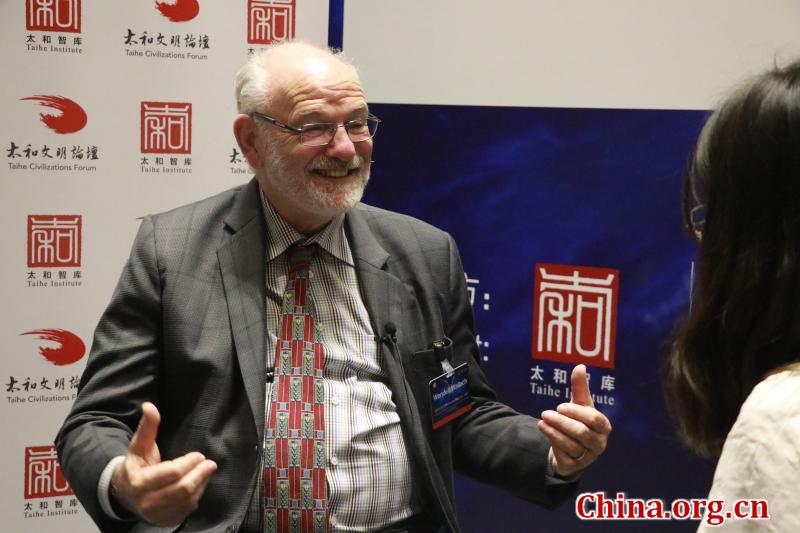American ethicist urges nudge of tech development trajectory
- By Zhang Liying
 0 Comment(s)
0 Comment(s) Print
Print E-mail China.org.cn, September 8, 2019
E-mail China.org.cn, September 8, 2019
While emerging technologies open up new prospects for human life, Wendell Wallach, a scholar at Yale University's Interdisciplinary Center for Bioethics, called for more consciousness about those technologies and efforts to nudge the trajectory of their development.

Speaking in an interview with China.org.cn on Saturday, Wallach said people today are seeing their lives changed by technologies in every conceivable way, even before making a decision about whether they want the changes.
"Nobody asked me whether I want to be wired to my phone. Yet, here I am," Wallach said.
"It's going to be that way in so many different areas of society, where machines will make decisions, your behavior will be manipulated by social media, and the reading of your facial expressions combined with large databases," he continued.
Wallach emphasized that technologies boast very impressive values, and people don't need to be fearful about the changes. "But that doesn't mean we have to embrace every possible course we could go down," he added.
"Like in the self-driving car, technology is moving into the driver's seat as a primary determinant of human's future," Wallach said. "So we need to reflect more seriously about where we want to go and begin to shape the trajectory of technological development a little bit more than we are doing today."
The American consultant and ethicist suggested establishing coordinated governance mechanisms of science and technology which involve all the stakeholders.
Wallach explained, "It's not coordination where everybody does the same thing, but where we think together, struggle together, map developments, recognize and debate differences."
He said the U.N. is a place where countries talk together, but it doesn't necessarily mean that non-governmental organizations and the non-represented people or corporations have the same say. "We need a centralized body that functions as a good faith broker in trying to facilitate the conversations among multiple stakeholders."
Wallach said he is taking the lead responsibility by organizing an international congress for the governance of artificial intelligence (AI). It is hoped the congress, scheduled for April 2020, can stimulate a new governance mechanism for AI and other technologies.
Wallach, also a senior advisor to The Hastings Center, is now in Beijing for the 3rd Taihe Civilizations Forum. The event organized by the Taihe Institute, a think tank founded in 2013, aims to offer a platform for discussions on such topics as international relations, advanced technology and people-to-people exchanges.






Go to Forum >>0 Comment(s)